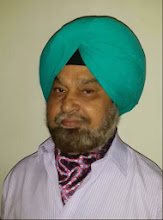We need an Indian Model for Civil-Military Relations. This is necessitated for reasons of our being a comparatively ‘young nation’, emerging quality of political leadership and its ethos, self-serving attitudes all around, rampant corruption, under-development of about 40% of our population, and tensed security scenario in the sub-continent amongst others.
In order that the Indian Democracy develops and flourishes, all stakeholders in the country need to ensure effective and efficient Governance. Political Leadership should vow and act to provide it. Indian Masses cannot wait indefinitely, or else the vacuum in leadership will be filled by certain other type of leadership, Communists, Maoists, or worse by Indian Military to its peril.
Our debate on Civil-Military Relations should focus on ‘concept’ rather than ‘actors’ – needs to be orchestrated at higher intellectual level. It is the transition of leadership from Civil to Military in nations that should be of concern to its citizens who believe in democratic values.
Svipja CMR Chair, http://www.svipjacmrchair.blogspot.com/ , addresses the issue of the Civil-Military Relations in the Indian Context dispassionately. We feel that we need to understand the nuances of the CMR as a nation, and apply them appropriately in our day-to-day interactions in Civil & Military spheres to retain the right balance. The Indian Constitution is then held high.
Shri NS Sisodia (ex-IAS) , Director General, Institute for Defence Studies and Analyses(IDSA), could not be more right in articulating ,“This will involve providing greater space to the Armed Forces in relevant decision-making structures, seeking their partnership in national security and defence policy-making and addressing issues of modernisation and ‘jointness’ on priority.” And he aptly remarks: “A democratic polity is not just about civilian control but also about a military strong enough to protect it.”
Civil-Military-Civil Maryada should be the guiding light for the CMR.
After all, the Military pays the price of follies of the other ‘actors’ by its ‘blood’; stature and elan are dear to them.
Read the Article by Ali Ahmed , IDSA, Civil-Military Relations Under Scan
Brigadier(Retired) Sukhwindar Singh
Chairperson, SvipjaCMRChair
In order that the Indian Democracy develops and flourishes, all stakeholders in the country need to ensure effective and efficient Governance. Political Leadership should vow and act to provide it. Indian Masses cannot wait indefinitely, or else the vacuum in leadership will be filled by certain other type of leadership, Communists, Maoists, or worse by Indian Military to its peril.
Our debate on Civil-Military Relations should focus on ‘concept’ rather than ‘actors’ – needs to be orchestrated at higher intellectual level. It is the transition of leadership from Civil to Military in nations that should be of concern to its citizens who believe in democratic values.
Svipja CMR Chair, http://www.svipjacmrchair.blogspot.com/ , addresses the issue of the Civil-Military Relations in the Indian Context dispassionately. We feel that we need to understand the nuances of the CMR as a nation, and apply them appropriately in our day-to-day interactions in Civil & Military spheres to retain the right balance. The Indian Constitution is then held high.
Shri NS Sisodia (ex-IAS) , Director General, Institute for Defence Studies and Analyses(IDSA), could not be more right in articulating ,“This will involve providing greater space to the Armed Forces in relevant decision-making structures, seeking their partnership in national security and defence policy-making and addressing issues of modernisation and ‘jointness’ on priority.” And he aptly remarks: “A democratic polity is not just about civilian control but also about a military strong enough to protect it.”
Civil-Military-Civil Maryada should be the guiding light for the CMR.
After all, the Military pays the price of follies of the other ‘actors’ by its ‘blood’; stature and elan are dear to them.
Read the Article by Ali Ahmed , IDSA, Civil-Military Relations Under Scan
Brigadier(Retired) Sukhwindar Singh
Chairperson, SvipjaCMRChair



